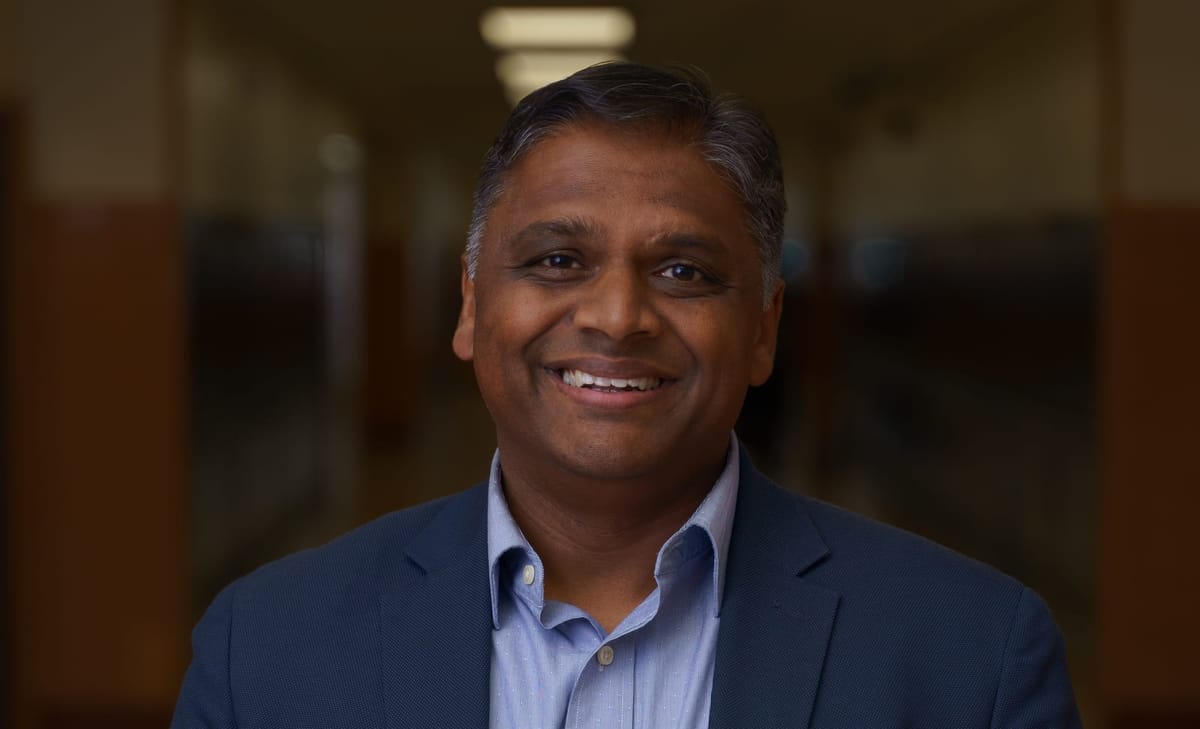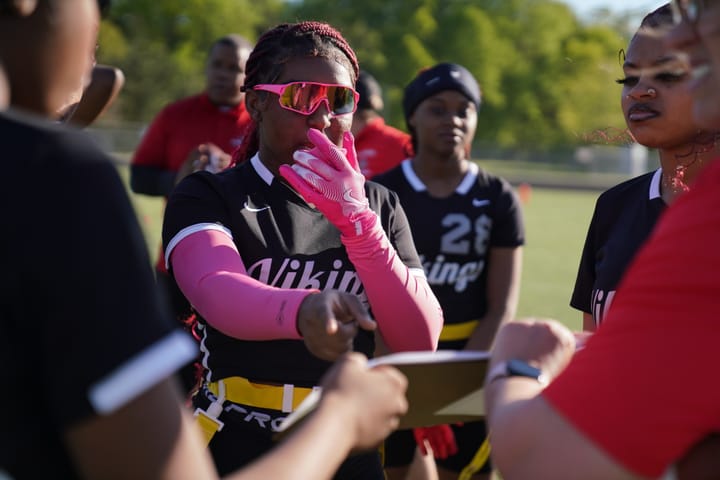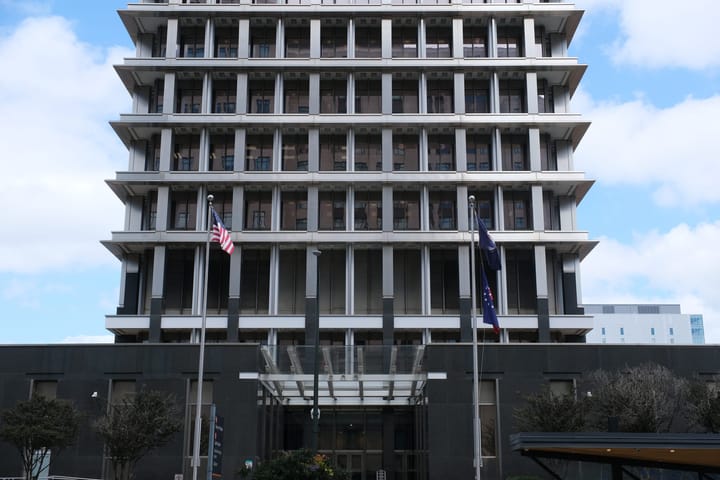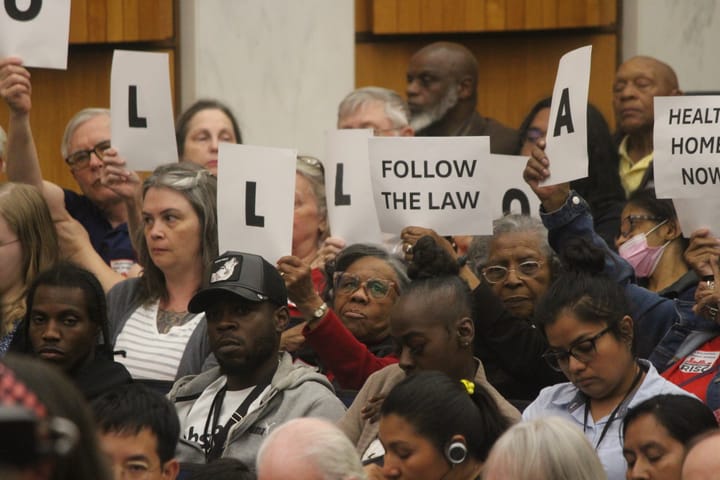Danny Avula’s Church Hill neighbors, health department experience led him to mayoral run

Jan. 6, 2021, was a big day for Dr. Danny Avula.
On the same day the U.S. Capitol came under attack, Avula was at a news conference in downtown Richmond, where he was getting the most high-profile public health assignment of his career.
At the time, Virginia was seeing some of its biggest COVID-19 numbers yet, and early efforts to distribute the vaccine weren’t exactly off to a roaring start. Gov. Ralph Northam said it needed to speed up. And he picked Avula, an Indian-born pediatrician at Chippenham Hospital who lives in Richmond’s Church Hill neighborhood, as the person for that job.
Avula said his experience during that crisis — which required an intense focus on data to measure how policies were working, partnering with the private sector and “listening deeply” to community feedback — is partly what inspired him to run to be Richmond’s next mayor.
“It did give me a sense that, man, when government is really doing these things well, it can be incredibly effective,” Avula, 46, said in an interview with The Richmonder.
Avula had served in public-facing roles before as the former director of the Richmond and Henrico Health Districts, where he served in the early stages of the pandemic. But being a “very visible face” at a time when many Virginians were fearful and uncertain, Avula said, felt like an extension of his work as a doctor who helps hospitalized children and their parents.
“A lot of that work is about clear communication and trust building and bringing calm to what can be a very anxiety-provoking situation,” Avula said. “And so I ended up having to do that for 1.2 million people in the region, and then eight-plus million people in the state.”
Now “energized” for a new role in local government, Avula said he wants to bring that energy to bear on issues he’s seen play out in his own Richmond neighborhood.
Avula would be Richmond’s first immigrant mayor, but he came to America as a baby. Because his father served in the U.S. Navy, he spent the first six years of his life in San Diego. His family ended up in the D.C. area as both his parents took federal government jobs. From there, he went to the University of Virginia and ultimately arrived at Virginia Commonwealth University for medical school.
As his career was starting to take off in the early 2000s and he was developing an interest in the root causes of health disparities, Avula said he, his wife (now a teacher at Chimborazo Elementary School) and a group of college friends decided to move to Church Hill with a goal of pursuing “authentic relationships across race and class.”
“There were really challenging and good conversations and realizations about poverty and about the reality of growing up Black in this country,” Avula said. “And how my neighbors’ experiences were going to be different than mine and my kids because of that.”
Over time, Avula also saw gentrification pushing out his Black neighbors who couldn’t afford to stay. Meanwhile, newcomers came in and renovated old houses within walking distance of many of the restaurants that were winning Richmond accolades as an up-and-coming city.
Avula said his focus as mayor would be to continue the “so many good things that have happened” while making a concerted effort to provide more opportunity for lower-income people of color who feel left out of that success or even uprooted by it. To him, that means translating the “principles of justice and equity” into effective, outcome-focused policy.
“That would be incredibly exciting to see where we've come from as the capital of the Confederacy to a city that really operationalizes equity,” he said. “And really has tangible evidence that we have invested in making those wrongs of history right.”
Avula lists affordable housing, safer neighborhoods, City Hall reform, more funding for schools, support for abortion rights and more environmentally-friendly city policies as top priorities for his campaign. His campaign has published several policy papers laying out his approach to those topics.
His opponents in the five-person race all list similar priorities, and that agreement has made the election less about big policy differences and more about whose background, experience and values best fit what Richmonders want to see in a new city leader.
Avula has had to play defense this year over his decision to serve as commissioner of the Virginia Department of Health and Social Services under Republican Gov. Glenn Youngkin, who isn’t a particularly popular figure in heavily Democratic Richmond. For some skeptics, Avula’s Christian faith and affiliation with a church that’s taken conservative stances on marriage and abortion have added to those suspicions.
Describing himself as a committed Democrat, Avula has said he firmly supports LGBTQ equality and reproductive rights, messages he’s tried to hammer home through a pair of TV ads featuring a gay member of his family and a prominent local doctor with a history of pro-choice activism.
To bolster his pitch as an effective government leader with a technocratic side, Avula often points to how Virginia went from one of the least-vaccinated states in the country to top 10 status as he worked to figure out why the shots were going slowly. An initial hurdle, he said, was convincing hospitals to part with their early vaccine stockpiles that were being set aside to ensure medical personnel got the necessary second doses.
He’s also highlighted how, at the Social Services Department, he dramatically shortened how long it took to complete Child Protective Services background checks. By bringing in more staff and implementing better technology, he said, the process was shortened from a matter of months to a matter of days.
“How you do that is that you’ve got to roll your sleeves up and actually get into the processes that are supposed to be public serving, public facing,” he said. “And you've got to set targets, and you've got to hold people accountable to that.”
Asked what he believes sets him apart from his opponents, Avula said it's his track record of doing the type of collaborative policymaking Richmond needs, work that involves engaging the public and finding partners who can bring more resources to bear on city issues.
“Having done it professionally as a public health and social services leader,” Avula said of his run for mayor, “I felt like this is a way that I could really invest in and help shape the next chapter of Richmond.”






